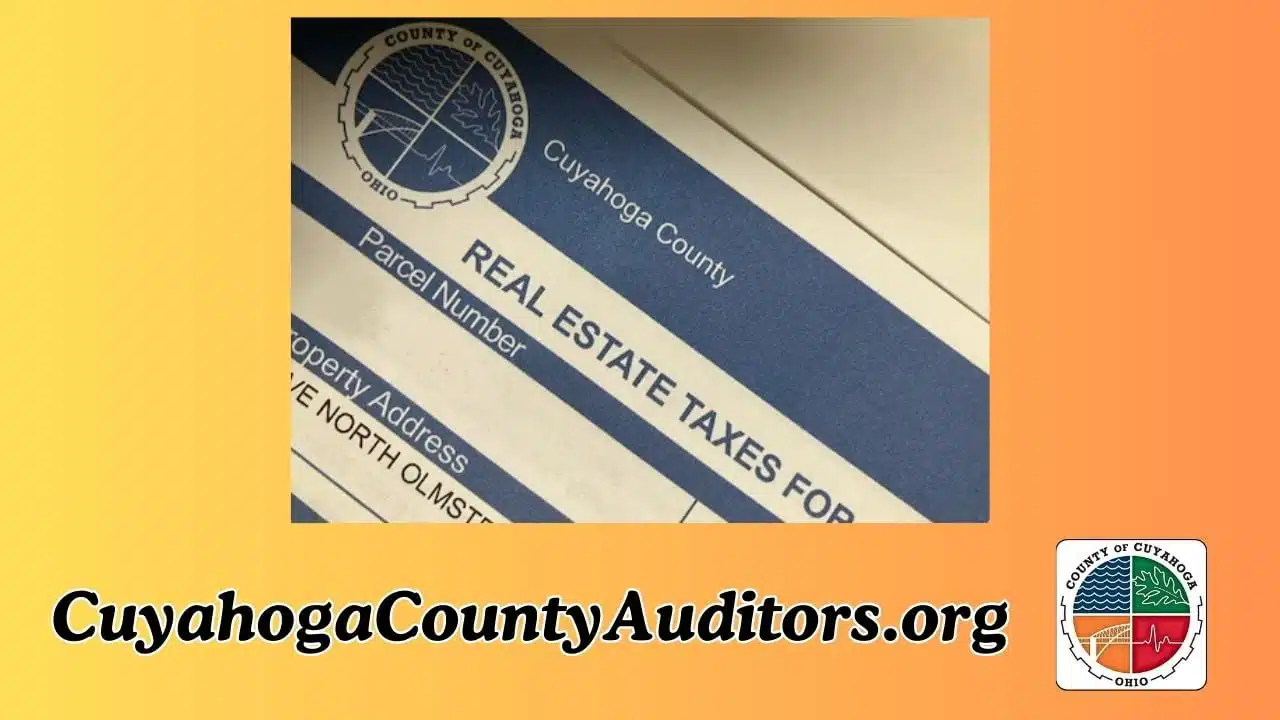The Cuyahoga County Auditor is key to the financial health of Cuyahoga County, Ohio. They handle budgeting, financial oversight, and managing public funds. This article will explore their role, responsibilities, and how they help govern effectively.
What is the Role of the Cuyahoga County Auditor in Budgeting & Finance?
The Cuyahoga County Auditor oversees the county’s finances. They manage the budget, ensure funds are allocated correctly, and audit department finances. Their work keeps taxpayer money transparent and efficient.
The Auditor plans, monitors, and assesses the county’s budget. This ensures public funds are used right. Their efforts help the county stay within its budget, avoid waste, and serve the public well.
Key Responsibilities of the Cuyahoga County Auditor
The Cuyahoga County Auditor has many important duties. These duties help keep the county financially sound.
1. Budget Preparation and Monitoring
The Auditor is key in preparing and monitoring the county’s budget. They work with departments to estimate income and expenses. This ensures budgets match county goals.
- Revenue Estimation: The Auditor predicts county tax and revenue income. This helps balance the budget.
- Expense Planning: They ensure spending matches expected income. They suggest cuts or adjustments when needed.
- Monitoring Expenditures: The Auditor checks spending all year. They conduct audits to catch overspending or mismanagement.
2. Audit and Accountability
The Auditor audits county departments to check fund use. These audits are vital for transparency and public trust.
- Internal Audits: Regular audits review county agency finances. They find inefficiencies, fraud, or accounting errors.
- External Audits: The Auditor works with external auditors. They ensure financial records are accurate and follow laws.
- Fraud Prevention: Audits help detect and prevent fraud. This protects taxpayer money.
3. Tax Assessments and Property Valuation
The Cuyahoga County Auditor also assesses property values. This determines property tax amounts for homeowners and businesses.
- Property Appraisal: The Auditor oversees annual property value assessments. These values set property tax rates.
- Tax Equalization: They ensure fair property tax distribution. Adjustments and reappraisals are made as needed.
- Exemptions and Deductions: The Auditor manages tax exemptions and deductions. This helps taxpayers get the benefits they deserve.
4. Financial Reporting and Transparency
The Cuyahoga County Auditor is key in sharing the county’s financial health. They provide clear, timely reports on spending. This keeps the public informed.
- Annual Financial Reports: The Auditor must give detailed annual statements. These show the county’s financial status, including income, expenses, and debts.
- Transparency Initiatives: The Auditor makes financial data public. This lets citizens see how their taxes are spent. It builds trust and accountability.
- Compliance: The Auditor checks if the county follows financial laws. This avoids legal issues and ensures good financial management.
5. Debt Management
Managing the county’s debt is a big job for the Auditor. They make sure the county doesn’t spend too much. They also ensure timely payments.
- Bond Issuance: The Auditor helps issue bonds for big projects. They manage the debt to keep it sustainable.
- Debt Tracking and Payments: The Auditor watches over debt payments. They make sure the county meets its financial duties without extra costs.
6. Citizen Engagement and Outreach
The Cuyahoga County Auditor is more than a financial expert. They connect the county with its people. This builds trust and transparency.
- Public Access to Information: The Auditor makes sure people can see important financial data. They show how funds are used.
- Community Outreach: The Auditor goes to community events. They teach about budgeting and finance. This helps people understand county finances.
- Grievance Redressal: Citizens can talk to the Auditor about financial concerns. They help solve problems.
7. Collaboration with Other Government Entities
The Cuyahoga County Auditor works with other officials. This includes the county executive, council, and state agencies. They work together for better financial management.
- Inter-Governmental Communication: The Auditor talks to state and federal agencies. They make sure the county follows financial policies.
- Advisory Role: The Auditor advises other officials. They offer insights on budgeting and finance.
Key Responsibilities of the Cuyahoga County Auditor
| Responsibility | Description |
|---|---|
| Budget Preparation and Monitoring | Prepares and monitors the county budget, ensuring alignment with revenue estimates and department needs. |
| Audit and Accountability | Conducts internal and external audits to ensure proper use of public funds and prevent financial misconduct. |
| Property Valuation & Tax Assessment | Assesses property values to determine property taxes and ensures fair and equal taxation practices. |
| Financial Reporting | Produces annual financial reports and ensures transparency in county finances. |
| Debt Management | Manages the county’s debt and ensures timely payments and responsible borrowing practices. |
| Citizen Engagement | Engages with the public to ensure transparency, resolve grievances, and educate citizens on financial matters. |
Insights into the Importance of the Cuyahoga County Auditor

Financial Transparency and Public Trust
The Auditor’s role in financial transparency is huge. They provide clear reports and audits. This lets residents see how their tax dollars are used.
This openness builds public trust. Trust is key for good governance.
Protecting Taxpayer Money
The Auditor is key in protecting taxpayer money. They watch spending, prevent fraud, and make sure funds are used well. This protects the community’s money.
Strategic Budgeting for Long-Term Growth
Strategic budgeting is vital for the county’s future. The Cuyahoga County Auditor ensures resources are used for important things like roads, schools, and services. They keep spending in check.
Facilitating Economic Development
The Auditor’s work helps economic growth. They manage funds well, creating a good business environment. This leads to better infrastructure, jobs, and growth.
Benefits of the Cuyahoga County Auditor’s Role in Local Governance
| Benefit | Description |
|---|---|
| Financial Accountability | Ensures public funds are used right, cutting waste and making county programs better. |
| Informed Decision-Making | Gives county officials data for smart budgeting, policy-making, and spending. |
| Public Confidence | Makes government more transparent, boosting public trust in local government. |
| Cost Savings | Finds ways to save money, making resources go further. |
| Long-Term Fiscal Health | Helps manage finances well, keeping the county stable and growing over time. |
Conclusion
The Cuyahoga County Auditor is vital for managing the county’s finances. They oversee budgeting, taxation, and financial reports. Their work ensures taxpayer money is used wisely.
Understanding the Auditor’s role helps us see how local governments manage money. It’s key for the well-being of our communities.
Whether you’re a resident or a local official, the Auditor’s work is essential. It keeps government transparent, accountable, and effective.






